A Walk Along a Swiss Nature Preserve Frozen in Time
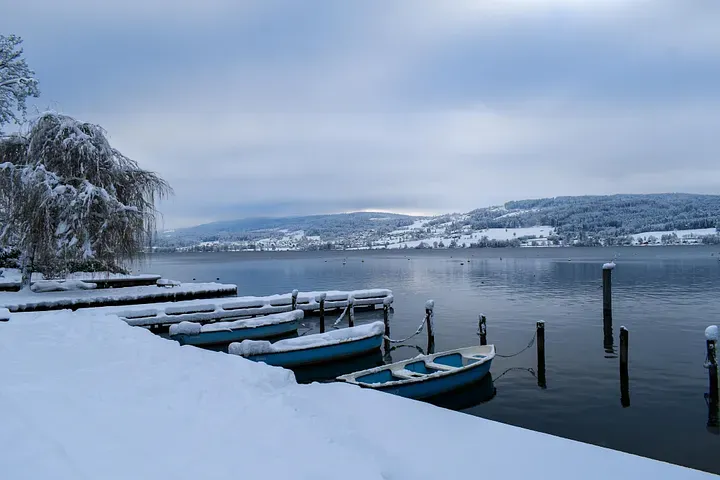
Greetings friends.
In Switzerland, you’re never far from nature. Of course, you’re never far from anything because the whole country is so tiny.
What this means is that our abundant nature scenes are usually hemmed in by civilization and society. Even atop our mountain peaks, you’ll typically find a cable car and a restaurant. While most welcome for hikers, it can be challenging to capture scenes of nature untouched by human hands.
Why Lake Greifensee was uniquely preserved
The story goes that the Swiss military wanted somewhere to safely practice bombing as WWII wound to a close. Whether it was that martial reason or the naturalist one that has long since become its chief draw, Greifensee was set aside as a nature preserve.

As such, no new structures could be built on or around it. Having a sizeable lake like this (the second largest in Zurich, around 20km around) go undeveloped for so long creates a special atmosphere.
I’ve been coming to Lake Greifensee since the 1990s, for work and pleasure. I’ve run around it more times than I care to count, and I always come away refreshed.
Although I’ve got probably thousands of pictures of it from every angle in every season, I have precious few showing it in winter.
This may surprise you, but Zurich is no winter paradise
All of Switzerland is not created equal when it comes to winter wonder. The big cities of Zurich and Geneva snake along tremendously large lakes and are some distance from the Alps mountain range. The combination means we see little snow in winter.
What we get are gray, foggy days punctuated by rain and sometimes freezing drizzle. Hardly the stuff of photographic legend.
But a couple of years ago, we had an epic snowstorm over New Year's that blanketed the country, including Greifensee. Everything was closed, so the opportunity was perfect to capture the lake and its surroundings in a way it’s seldom seen.
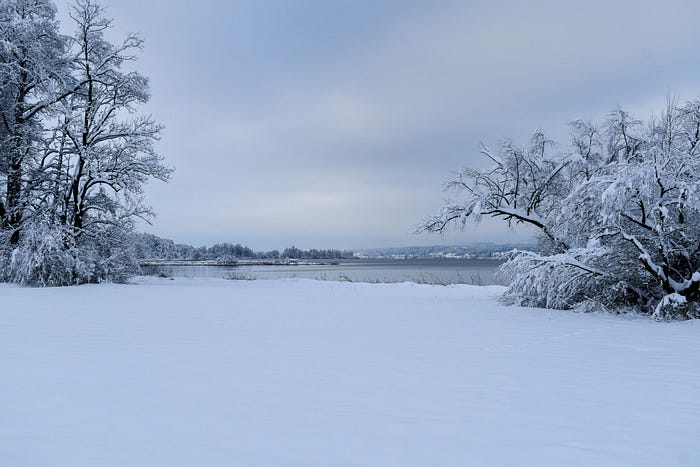
Greifensee has a medieval village
The lake is not completely undeveloped. What makes the Greifensee so special and fun is that there is a small medieval town center.
Greifensee boasts what I think is the oldest three-sided church in Europe, dating from the 1200s. (I don’t have a winter picture of it, but maybe a later article will provide an opportunity for me to share a summer shot.)
And we’ve got a castle! Best of all, the castle is not only open to the public but available to rent. Imagine having a corporate strategy meeting in a centuries-old castle. I’ve done it, and it encourages a different kind of creative thinking.
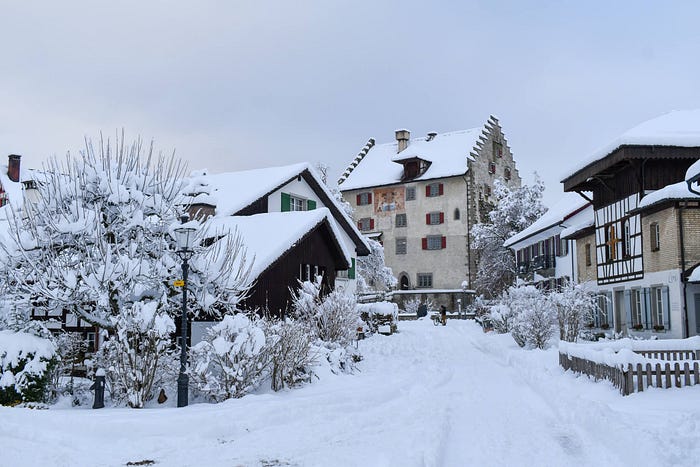
Mostly, the Greifensee is about nature
There are three ways to circumnavigate the lake: by car on the road around the lake, on a paved bike path (also used heavily by rollerbladers), and on a gravel path used by walkers and runners.
At several points, there are lookouts — long boardwalks jutting into the water. This is reminiscent of the oldest history we have about the Greifensee. Archaeologists have found traces of prehistoric pile dwellings around the lake and it is consequently a UNESCO World Heritage site. You probably had to be here to appreciate the excitement upon finding a 5,000-year-old woven sandal preserved in the mud.
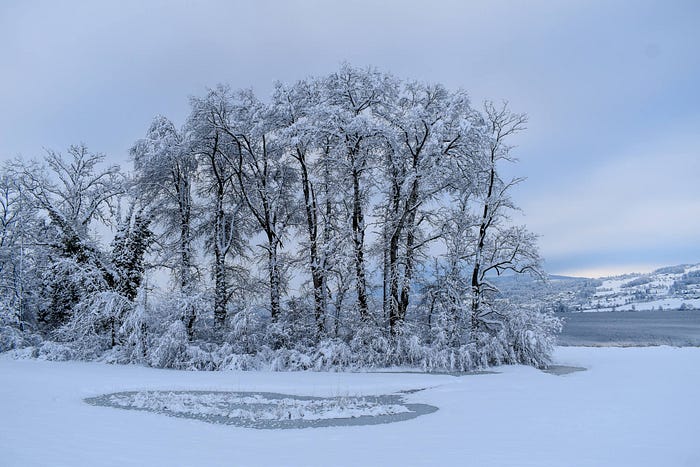
A small number of sailboats are allowed on the lake, and you’ll see dottings of fishermen in rowboats when it’s not bitter cold. Regular readers may now be wondering if they’ve seen the Greifensee in my articles before, and the answer is yes.
One more historical treat awaits the fortunate visitor on special summer days — Switzerland’s oldest still-functioning steam-operated ship, the Greif. It dates from 1895 and has been so wonderfully maintained that it still operates as well as when it was first put into service.
The whole experience of spending time on and around the Greifensee leaves one feeling romantic. And wondering what life must have been like back before not just the Internet and smartphones, but before cars and electricity.
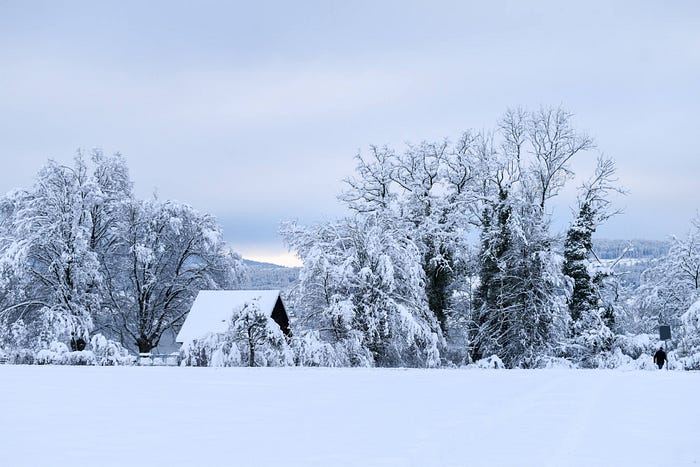
I hope you enjoyed this wintry walk with me in one of my favorite places in the world. It’s a reminder for us to appreciate and preserve what we have.
After all, not everything new is better, and once we’ve bulldozed over our history and heritage, we’ll be hard-pressed to get it back.
Be well.
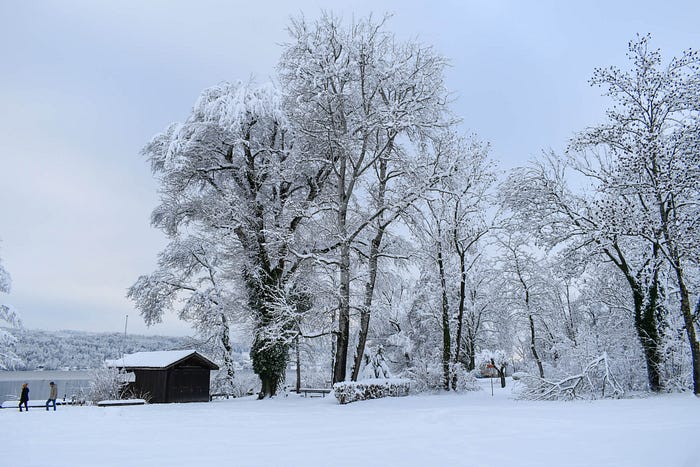






Member discussion